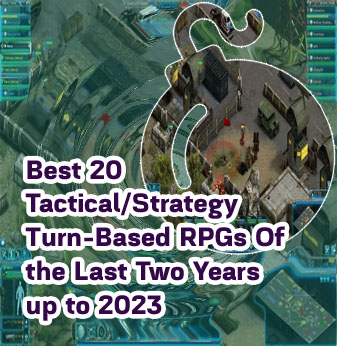Tactic games
Looking to up your game in tactical strategy? Check out these four articles that delve into various aspects of tactic games, offering tips, tricks, and insights to help you become a master strategist on the virtual battlefield.
Mastering the Art of Positioning in Tactic Games

"Mastering the Art of Positioning in Tactic Games" is a comprehensive guide that delves into the intricate strategies and tactics involved in various games that require strategic positioning. The book offers valuable insights and techniques for players looking to enhance their gameplay and outsmart their opponents.
One of the key takeaways from the book is the importance of understanding the concept of positioning and how it can make or break a game. By mastering the art of positioning, players can gain a competitive edge and increase their chances of success. The book provides practical tips and strategies for players to improve their positioning skills and make strategic decisions that can lead to victory.
Additionally, the book explores different tactics and approaches that players can use to outmaneuver their opponents and control the game. From understanding the strengths and weaknesses of different positions to anticipating the moves of their opponents, players can learn how to strategically position themselves for success.
Overall, "Mastering the Art of Positioning in Tactic Games" is a valuable resource for players looking to enhance their strategic thinking and improve their gameplay. By implementing the techniques and strategies outlined in the book, players can take their gaming skills to the next level and achieve success in their favorite tactic games.
5 Key Strategies for Success in Tactic Games
Tactical games require a unique approach and strategic thinking to achieve success. To excel in these games, players must employ specific strategies that can give them an edge over their opponents. One key strategy is to always analyze the situation thoroughly before making a move. By carefully assessing the game board and understanding the potential consequences of each decision, players can make more informed choices that will benefit them in the long run.
Another important strategy is to adapt to the changing dynamics of the game. Flexibility is key in tactical games, as strategies that work in one situation may not be effective in another. Players should be prepared to adjust their tactics on the fly and be open to trying new approaches to overcome challenges.
Communication is also vital in tactical games, especially in team-based scenarios. By effectively coordinating with teammates and sharing information, players can work together more efficiently towards a common goal. Good communication can lead to better teamwork, increased coordination, and ultimately, more victories.
One practical use case of these strategies can be seen in a competitive online multiplayer game where a team of players successfully implemented the above strategies. By analyzing the game situation, adapting their tactics as needed, and communicating effectively with each other, the team was able to outmaneuver their opponents and secure a decisive victory. Their positive attitude and
The Importance of Resource Management in Tactic Games
Resource management is a critical aspect of tactic games that often goes overlooked by players. The ability to effectively allocate and utilize resources can make the difference between victory and defeat in these strategic games. Resources come in various forms, such as currency, units, buildings, and upgrades, and mastering their management is key to success.
In games like real-time strategy (RTS) or turn-based strategy (TBS), players must carefully balance their resources to build armies, construct buildings, and research technologies. Without proper resource management, players may find themselves unable to expand their forces, upgrade their units, or maintain their defenses, putting them at a severe disadvantage against their opponents.
One of the key strategies in resource management is prioritization. Players must determine which resources are most important at any given time and focus on acquiring and utilizing them efficiently. Whether it's gathering more gold to recruit additional units, collecting more food to sustain their population, or stockpiling materials to construct defenses, players must make strategic decisions to maximize their resources' potential.
Overall, resource management is a fundamental skill that all tactic game players must develop to succeed. By mastering the art of resource allocation and utilization, players can gain a significant advantage over their opponents and increase their chances of victory.
Understanding Unit Abilities for Tactical Advantage
In the realm of tactical strategy games, a deep understanding of unit abilities is crucial for gaining the upper hand in battle. Each unit possesses unique skills and attributes that can be leveraged to outmaneuver opponents and secure victory on the battlefield.
One key aspect to consider when delving into unit abilities is the synergy between different units. By strategically pairing units with complementary abilities, players can create powerful combinations that can turn the tide of battle in their favor. For example, pairing a unit with high defense with a unit that excels in offense can create a formidable duo that is difficult to defeat.
Another important factor to consider is the terrain in which battles take place. Certain unit abilities may be more effective in specific types of terrain, such as forests or mountains. By taking advantage of these environmental factors, players can further enhance their tactical advantage and gain an edge over their opponents.
Furthermore, it is essential to carefully study and understand the abilities of each unit in order to make informed decisions during gameplay. By knowing the strengths and weaknesses of each unit, players can better position their troops and anticipate their opponent's moves.
In conclusion, a deep understanding of unit abilities is essential for achieving success in tactical strategy games. By considering unit synergy, terrain advantages, and individual unit abilities, players can